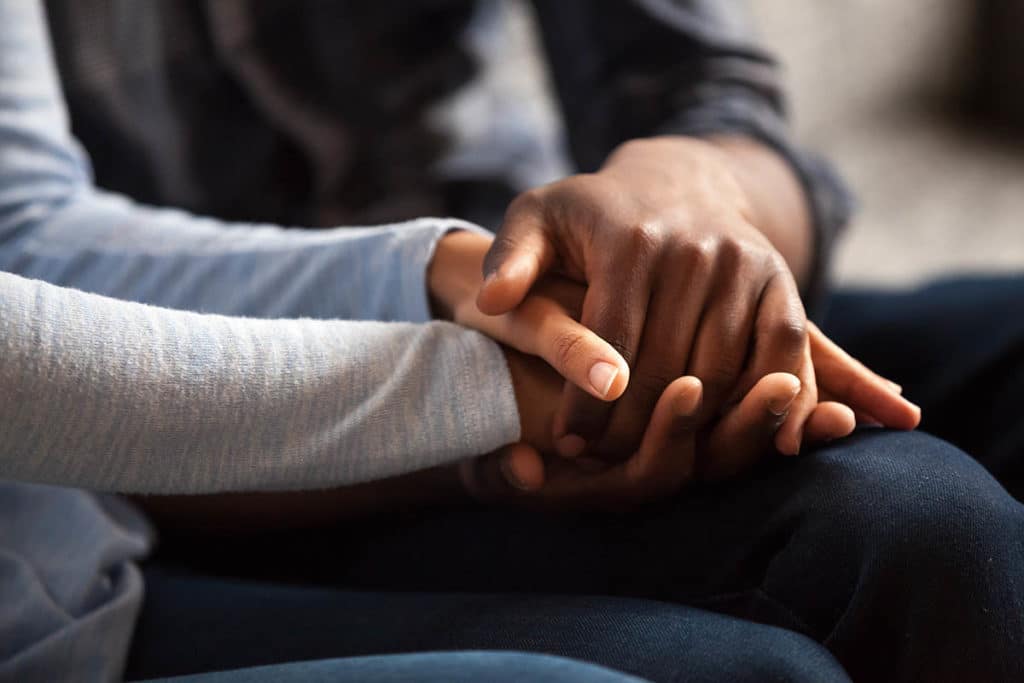Watching a loved one develop a drug addiction is one of the most difficult experiences you can go through. The first step to overcoming drug addiction is to undergo a medically supervised drug detox. After that, a treatment program can provide the tools needed to make a long-term recovery.
Here are three ways to help someone addicted to drugs. It’s impossible to force someone to get help for addiction. However, a person addicted to drugs may not believe they have a problem. By offering informed support, you can be a positive force that encourages them to get the help they need
If your loved one is struggling with drug addiction, The Bluffs is here to help. Give us a call today at 330.919.9228 to learn more about the addiction treatment services available at The Bluffs.
Three Ways to Help Someone Addicted to Drugs
1. Learn About Addiction
When you begin looking for ways to help someone addicted to drugs, your first step should be education. One mistake well-intentioned loved ones often make is trying to get involved without knowing much about addiction.
Drug addiction is complex, and it’s usually caused by a combination of:
- Genetic history
- Imbalanced brain chemistry
- Peer pressure
- History of trauma
- Environmental factors
- Type of drug used
Some individuals initially try drugs due to curiosity or peer pressure. Others may seek relief from physical or emotional pain. It’s also common for individuals to use substances in an attempt to self-medicate for untreated mental health conditions.
Understand that drug addiction is complex, and stopping substance use is rarely simple or easy for someone who has developed an addiction.
2. Encourage Them to Get Professional Help
Most illicit drugs lead to long-term health complications, and many drugs can cause a fatal overdose. Depending on the type of drug used, a person addicted to drugs may risk death every time they get high.
Some drugs create physical dependence. Attempting to detox at home without medical supervision can lead to serious health consequences or even death. The best way to help a loved one stop using drugs is to encourage them to seek help at an addiction treatment center. Medically supervised detox is often the only way to safely stop drug use.
Successful recovery from drug addiction doesn’t happen overnight. A patient may need inpatient and outpatient care, counseling, and recovery maintenance through an addiction support group. They may also need to make significant changes in their personal lives to create an environment that supports long-term recovery.
3. Set Healthy Boundaries
Don’t forget to consider boundaries when you’re looking for ways to help someone addicted to drugs. Oftentimes, family members and friends unintentionally enable drug addiction. Drug use brings serious consequences, like the loss of employment, child custody, and housing, and it often leads to legal issues.
When you pick up the pieces for someone addicted to drugs, they’re less motivated to get help. Unfortunately, sometimes a person needs to hit “rock bottom” before they’re motivated to change.
Setting healthy boundaries can protect your own mental and emotional health as you deal with a loved one’s drug addiction. Remember that no matter how much you love someone, you cannot control their behavior or force them to stop using drugs.
Ask for Help With Drug Detox at The Bluffs
These three ways to help someone addicted to drugs allow you to offer support in a healthy way. When a loved one is ready to get help, The Bluffs can connect them to the resources they need.
Professional addiction treatment at The Bluffs involves participation in a variety of therapies under the supervision of a team of behavioral health professionals. Our treatment programs help individuals address the underlying mental and emotional factors that contribute to addiction and teach tools and strategies for avoiding relapse.
You can learn more about getting help for a loved one addicted to drugs by calling The Bluffs at 330.919.9228.








